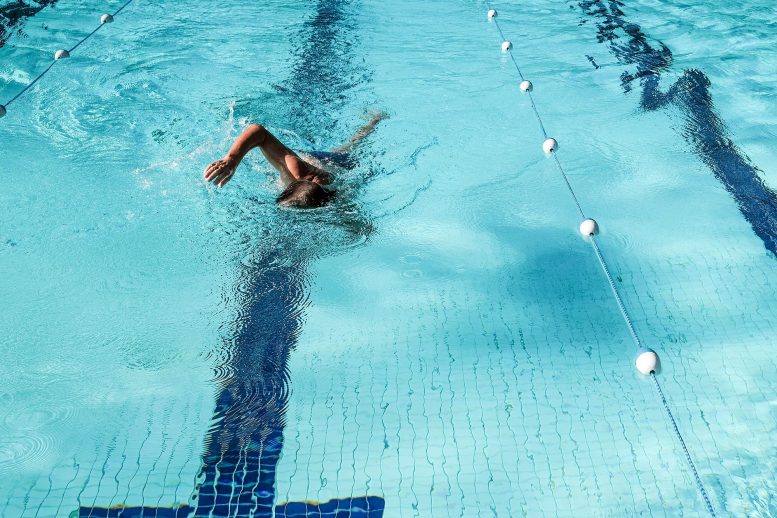
Pools across the U.S. are set to reopen in the coming weeks. If recommended chlorine levels are maintained as usual, the pools themselves should pose minimal risk of spreading the coronavirus to swimmers, says a Purdue University engineer who studies pool water decontamination.
For indoor pools, the greater risks to coronavirus spread would include poor air circulation, crowds, and contaminated surfaces such as handrails.
Expert, Ernest "Chip" Blatchley III, Purdue's Lee A. Rieth Professor in Environmental Engineering, researches how chlorine in swimming pools reacts with contaminants such as human body fluids, pharmaceuticals, and personal care products. He is a professor of civil engineering and environmental and ecological engineering.
Blatchley says, "There are no data to show how the coronavirus responds to chlorine, but we do know that chlorine effectively inactivates similar viruses.
In the U.S., the general guidance for keeping pools properly disinfected is maintaining a free chlorine concentration between 1 and 5 milligrams per liter. If a pool has that concentration, there would be very little infective novel coronavirus in the water.
On the other hand, the air in an indoor pool is liked to pose similar risks of coronavirus spread as other indoor spaces. A person's risk would not be affected by the water. The most relevant issue would be contamination of the air or surfaces in these facilities."
Blatchley has studied pool water treatment and chemistry for more than 20 years. His work has resulted in dozens of peer-reviewed published papers on pool water chemistry and he is currently serving on two committees within the Council for the Model Aquatic Health Code to develop guidance on pool management in the U.S.